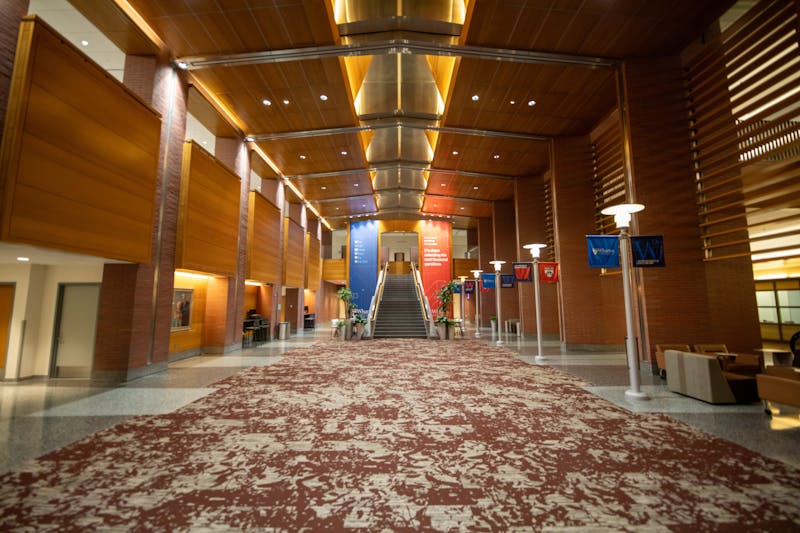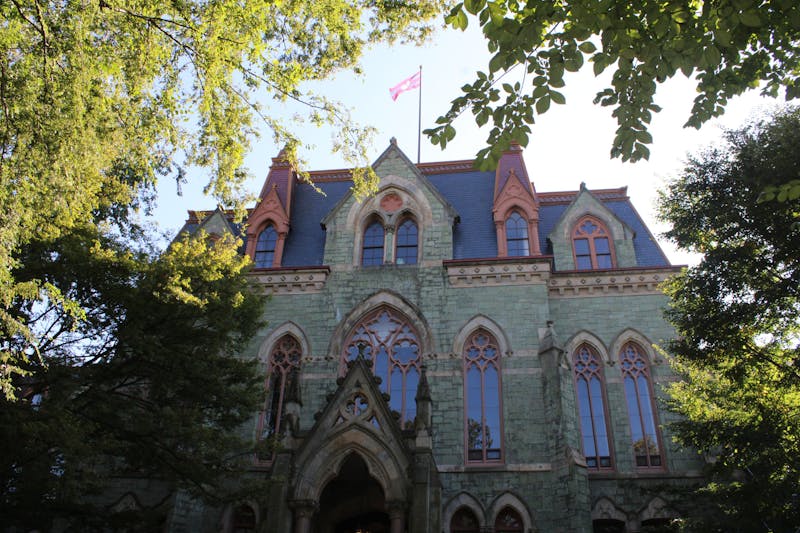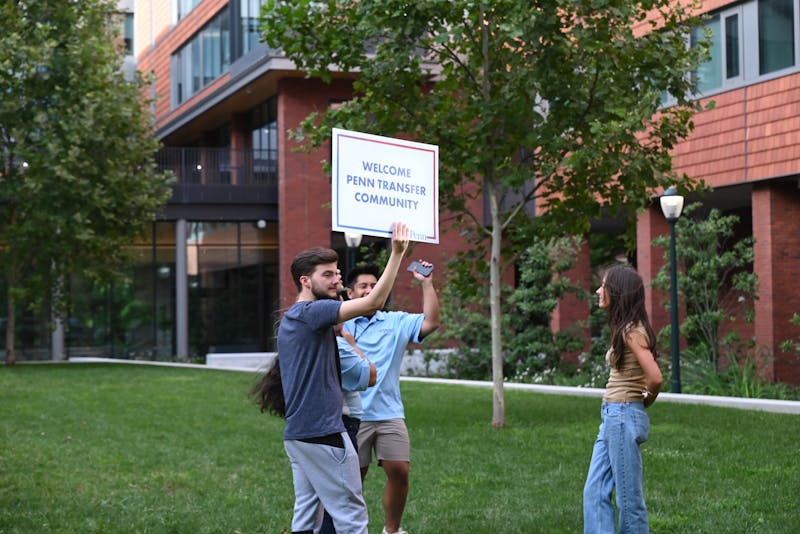
Columnist Ashti Tiwari advocates for the benefits of pursuing careerism.
Credit: Elizabeth YuanYou’ll often hear complaints about the preprofessional nature of Penn. A former peer of mine wrote an guest Opinion essay in The New York Times arguing that the careerist culture at Penn takes away from what should be a welcoming, open-minded college experience.
While I deeply admire the piece, as it effectively summarizes the anxieties surrounding club applications, internships, and return offers, it overlooks the valuable benefits of this competitive environment.
Yes, Penn’s dominant preprofessional culture funnels students toward a narrow set of high-paying careers in finance or consulting. Of the Class of 2022 Penn graduates, roughly 50% went into full-time jobs in those two fields. Yet, although half of the student body chooses these lucrative paths, careerism isn’t limited to these fields, nor does it take away from our overall college experience.
The careerist environment at Penn fosters success, pushing students to cultivate marketable skills that are applicable across all fields. As long as students engage in the prevalent professionalism in some sense, this culture caters to virtually any interest.
To clarify what resources fall under the wide-reaching tool of preprofessionalism, I am referring to the coffee chat culture, frequent networking opportunities, Penn Career Services, and the vast alumni networks of clubs and other organizations.
For many students, careerism isn’t just an added benefit of college; it’s a necessity. Many students enroll with the goal of securing a high-return job after graduation, making career preparation an essential part of their education. Of the Class of 2028 student body, 19% are first-generation college students, and a portion of them will inevitably join the approximately 50% of the class expected to enter finance or consulting. For first-generation students, access to career opportunities in these fields is especially transformative. These industries provide access to professional networks and financial stability, which are particularly meaningful for students and their families who have experienced lifelong financial stress.
While some might say this detracts from the idyllic and adventurous college experience, that perspective often comes from a place of privilege. Those who criticize careerism’s impact on college culture generally have safety nets that allow them to view college as a time for exploration rather than preparation.
Still, for all students, preprofessionalism is a tool that ensures preparation for post-graduate life, regardless of major or background. In fact, college can still be a time for exploration without the tradeoff of professionalism.
At my first networking event, I spent the entire time talking to a recruiter about an interesting Urban Studies course I had taken. After countless conversations about the same classes and extracurriculars that I assumed were the only topics relevant to recruiting, it was refreshing to have a meaningful discussion about something I was genuinely passionate about in a professional setting.
This isn’t to say urban studies is not professional, but rather, traditionally lucrative majors such as finance or engineering seemingly dominate the careerist path. However, the interaction at the networking event demonstrates that we have the opportunity to pursue any major and still succeed however we wish, because of the professionalism tied to our University. An Ivy League degree can typically speak for itself.
Even so, this is not the consensus from the general public, who mostly consider certain majors to be the only path to success.
Viral videos on TikTok about New York University’s concentrations are filled with comments questioning what students could do with these untraditional academic backgrounds. The NYU Gallatin School of Individualized Study allows students to design unique concentrations, much like Penn’s uncoordinated dual degree programs, through which students can immerse themselves in interdisciplinary curriculums. This integrative perspective provides the opportunity to explore without any careerist compromise.
At an esteemed institution like NYU, as well as one like Penn, students can pursue any academic path and know how to market those skills in any industry. You can be a pre-med student and pick up a fine arts minor or do a double major in gender, sexuality, and women’s studies and sociology. Try picking up a religious studies class simply because you are interested, or concentrate in finance with a minor in urban studies. The opportunities are vast, and careerism is never going to be a limiting factor.
While at times it might seem burdensome and overwhelming to think about post-graduation plans so early on in college, the long-term benefits of a careerist undergraduate experience far outweigh the short-term longing for a more leisurely one.
A careerist environment doesn’t stifle passion: It enables students to turn their passions into sustainable, fulfilling careers.
ASHTI TIWARI is a College sophomore studying philosophy, politics, and economics from Corning, N.Y. Her email address is ashti@sas.upenn.edu.
The Daily Pennsylvanian is an independent, student-run newspaper. Please consider making a donation to support the coverage that shapes the University. Your generosity ensures a future of strong journalism at Penn.
Donate












